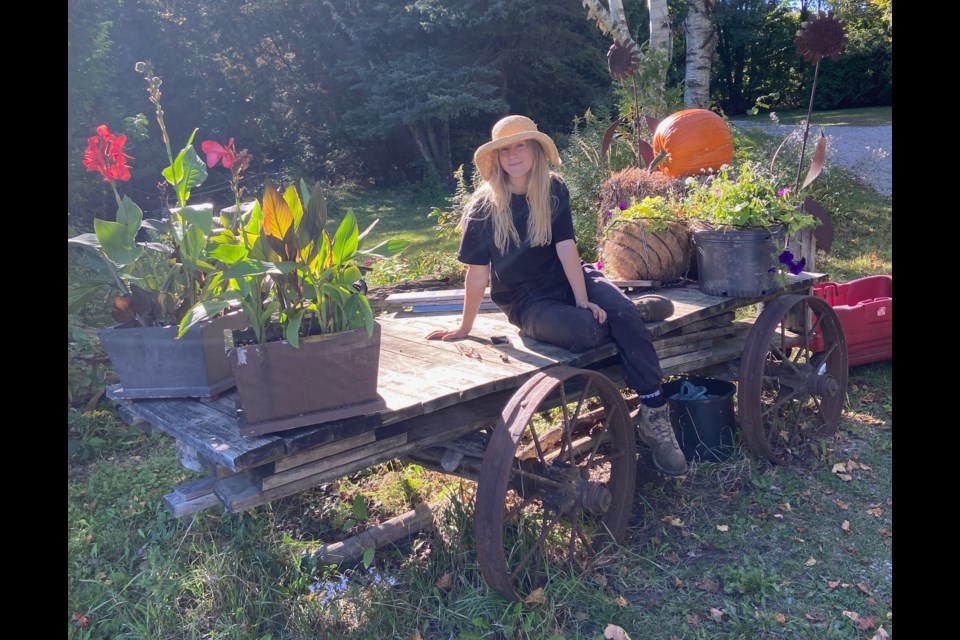The possibility of the city expanding its boundary has led to the creation of a group that plans to fight against it.
Madeleine Fournier, who leads the Green Orillia organization, was among about 200 people who took part in a virtual open house in December regarding the city’s land needs. The amount of opposition to the idea of the city annexing land from its neighbours prompted her to get more involved.
After discussing the matter with a group of others who shared her concerns, Fournier pitched the idea of creating a group called Stop Sprawl Orillia. She was inspired by groups such as Stop Sprawl HamOnt and Stop Sprawl Halton. The former successfully lobbied its city council to reject expanding the boundary.
“That was amazing and inspiring,” Fournier said. “I thought, ‘This is what we need to do if we’re going to stop the sprawl.’”
About 50 people are on board with Stop Sprawl Orillia and the group will officially be launched soon.
Fournier said the group will focus on advocacy and education through social media and a website as well as the creation and distribution of lawn signs. It will also create a petition and have an option for people to add their names to a pre-written message that can be emailed to the mayor and council.
Stop Sprawl Orillia will be about more than voicing its opposition, she said.
“Yes, we are against sprawl, but we also want to propose something. It’s not just about being against something.”
Fournier, a recent Wilfrid Laurier University graduate who studied environmental sustainability and community engagement, believes intensification is a better option than sprawl.
“It doesn’t mean building a bunch of 12-storey buildings. It’s what we call the ‘missing middle,’” she said, noting that can include various types of housing. “It’s not all or nothing.”
She pointed to development plans in the city’s west end as a reason to be concerned about sprawl.
“Prominent local figures such as renowned naturalist Bob Bowles have recently been in the media concerned about the city paving over the Inch Farm wetland in Orillia,” she said. “If we can't even trust our city officials to protect sensitive ecological areas within the boundary, how can we trust that they will protect the ones outside the boundary that they are trying to annex?"
While a land needs assessment determined the city would require 380 hectares of additional land to meet provincially mandated growth targets, no decisions on annexation have been made.
That likely won’t happen for a year-and-a-half to two years, said Mayor Steve Clarke.
“If there are creative ways of taking pressure off of expansion, I’m all for it,” he said.
He added he agrees with the need for intensification.
“We need to intensify, and every neighbourhood in this city is going to see itself on the receiving end of intensification proposals,” he said.
However, the goal will be to find an “optimal balance” while “maintaining the integrity of neighbourhoods.”
“We are running out of employment land and it is hard to meet that need through intensification,” Clarke said.
Fournier recently wrote a letter to Clarke and the rest of council to share her concerns about sprawl.
“Many reputable individuals and organizations in the community are concerned that city council is moving forward with this because of staff recommendations, but we wanted to know if you are willing to represent your constituents in opposing the proposed boundary expansion, and if you would be willing to raise or support a motion to vote against it,” she wrote.
“At the very least, if you are not sure where your constituents stand, certainly you would want to ask them for their input on this crucial decision shaping our community via a public survey.”
She reminded them an election is coming up this fall.
“As the municipal election draws near, it is crucial that the people of Orillia know exactly where their current and future mayor and councillors stand on this important issue that will shape the future and sustainability of our city,” she wrote. “As a consequence, your position (or lack thereof) is a matter of public interest and will be shared with the public. As engaged residents, your clear and prompt response will be much appreciated.”
Clarke said an intensification strategy will be incorporated into the city’s Official Plan when it is updated in 2023.
That raised further questions for Fournier.
“Why are we hiring consultants and planning for boundary expansion when we haven’t solidified our strategy for intensification?” she asked. “It just doesn’t make sense.”
It’s about timing, Clarke said, noting the province is requiring all municipalities within the Greater Golden Horseshoe area to bring their Official Plans into conformity with the growth plan by July 1. The city has asked for an extension to July 1, 2024.
He said Fournier “made a lot of sense in her letter.”
The mayor said he was willing to have conversations with Fournier and other members of Stop Sprawl Orillia.
“If somebody cares that much, I commend them and will gladly listen to them,” he said. “If you want to effect change, have conversations with those who can effect change.”
If a decision to annex neighbouring land is made, Stop Sprawl Orillia will fight against it and encourage council to reconsider, Fournier said. Regardless, in the meantime, the group will focus on advocating against it.
“We have the momentum and we need to go ahead with this campaign even if a decision hasn’t been made on expansion,” she said.
